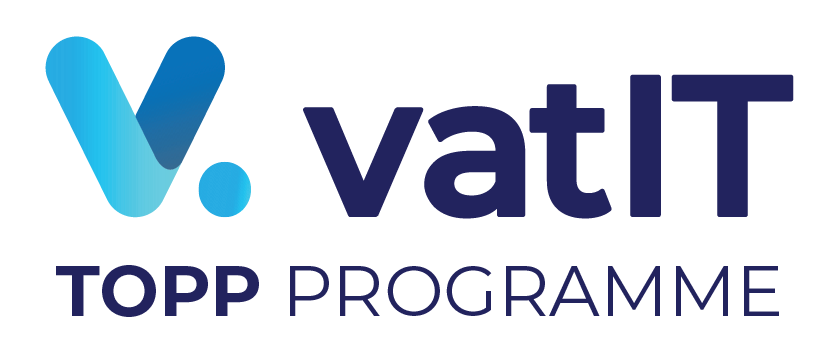Beat the Board: Tips to Help You Ace Your ITC Exam
With ITC approaching in January, we’re giving you a headstart with some insightful tips on how best to prepare for this exam. We know how intimidating this stage in your CA(SA) journey is, and we want to help you feel confident in your preparations.
What exactly is the ITC?
Before we dive into how to prepare for it, here’s a quick refresher. The Initial Test of Competence (ITC) is an exam administered by the South African Institute of Chartered Accountants (SAICA).
According to SAICA, this is the “standard setting exam which is written after the completion of an accredited CTA programme and is an essential assessment of core technical competence.”
The ITC is the first of two major board exams which make up the Qualifying Exam (QE) that trainees must pass before they qualify as chartered accountants. The second part of the QE is called the Assessment of Professional Competence (APC).
How does the ITC work?
How many hours do I have to sit for the ITC?
Although the ITC is referred to as one exam, it is split into four papers: Professional Paper 1, Professional Paper 2, Professional Paper 3 and – you guessed it – Professional Paper 4.
The four papers are written within the space of two examination days. On both days, one paper will be written in the morning, and one will be written in the afternoon. You’ll have 150 minutes of writing time in which to answer each paper, plus 30 minutes of reading time. There is a maximum of 120 minutes of break time between the papers. So, you’ll be writing two papers per day for approximately three hours each, with a maximum break of two hours between papers.
Okay, cool – how do the ITC marks work?
The maximum number of marks for each of the four papers is 100. So, the entire ITC exam – made up of four papers written over two days – comes to a max of 400 marks. The pass mark for the ITC is 200 points or 50%.
However, you can’t pass the ITC by acing one half of the papers and bombing the rest. Candidates need to demonstrate appropriate competence in all areas of the exam. Therefore, the overall pass mark of 50% is subject to your achievement of a sub-minimum of 40% in at least three of the four papers.
How to ace the ITC
We hope we haven’t scared you off yet! The ITC is a beast of an exam, it’s true. But, with the right attitude and the right preparation tips, we know that you’re going to crush this exam. We’ll show you how with some insider tips.
Tip 1: don’t panic
Ha! Easier said than done, we know. But stressing about the exam is not going to make it any easier to write. Keep three things in mind while you are preparing for this journey. One, you’ve already passed your CTA – you know what you’re doing. Two, as long as you adopt a logical approach to your study technique, you’re covered. Three – you can always write it again.
Maintaining a positive attitude is key to success, but sometimes it’s reassuring to remember that you always have more than one chance. As Sam’s father put it in the seminal 2004 film A Cinderella Story, “Never let the fear of striking out keep you from playing the game.” What’s an exam guide without an inspirational pop culture reference, after all?
Tip 2: work smarter, not harder
Accountancy SA interviewed the top 10 ITC candidates from 2015 to ask them about their experiences in preparing to write the ITC. Across the board, the most common piece of advice from the top achievers was this: work smarter, not harder.
Byron Forsberg recommended focusing on areas of weakness instead of going over old ground when it comes to studying the material. It can be reassuring and familiar to study areas in which you know your understanding is solid, but you have to predict that the exam will blindside you with questions with which you are not au fait.
It’s a great idea to establish a study schedule. Breaking down all the areas that you need to study and assigning a firm (but flexible) timeline to your study goals will give you a visualisation of your study journey. It will also help you avoid the dreaded last-minute cram that can spell the ruin of even the strongest students.
Tip 3: learn to think laterally
University exams test your comprehension or understanding of the material. Board exams, on the other hand, test your ability to integrate complex information. When approaching a question, approach it laterally. That is to say, don’t respond to a question by thinking in silos. The exam is testing your ability to draw on peripheral, contextual information to provide an informed response.
So, keep on top of current events! Subscribe to publications which write about business, world trade, the economy, and world events. Staying informed will help you to answer questions with a firm understanding of how the theories you’ve learned apply in the real world.
Tip 4: practice, practice, practice
There are plenty of past papers available on the SAICA website. However, doing past papers isn’t that helpful unless you are doing them under exam conditions. So, when you do write past papers, do them under mock exam conditions. This will help prepare you for the marathon task of the ITC exam.
Conclusion
Preparing for the ITC is a marathon, not a sprint. Pace yourself, don’t panic, and remember to leave space for rest and fun! No matter what happens, we know that you’re going to crush your exam preparations and achieve your professional goals.
